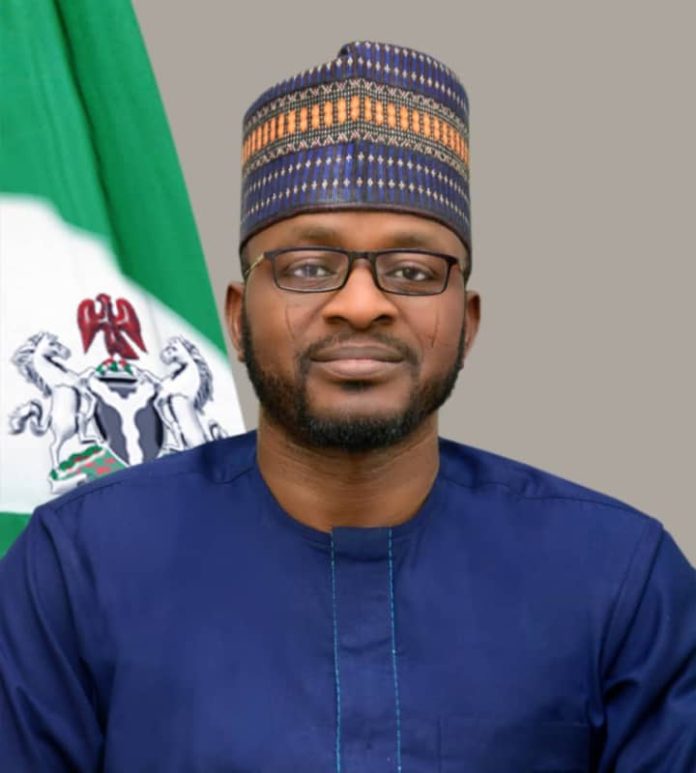By Agbo Christian Obiora
In a bold push toward grassroots inclusion and equal opportunity for persons with disabilities (PWDs), the Federal Government has reiterated its commitment to promoting disability-inclusive governance, especially in Nigeria’s rural communities, where marginalisation remains deeply entrenched.
This message was delivered at the official launch of the Local Government Disability Framework in Abuja, a landmark event organised by the Hope Inspired Foundation for Women and Youth With Disabilities (HIFWYD) with support from the Disability Rights Fund (DRF). The initiative is part of the ongoing Partnership for Disability Inclusive Local Governance (PADILG) project—an ambitious move to address the systemic exclusion of PWDs at the grassroots level.
Representing the Senior Special Assistant to President Bola Ahmed Tinubu on Special Needs and Equal Opportunities, Hon. Mohammed Abba Isa, the Director of Media and Communications in the Office of the SSA, Lanre Oloyede, delivered a compelling message on the importance of inclusive policy frameworks tailored to rural realities.
“Most persons with disabilities reside in rural communities, where they face multifaceted barriers to education, healthcare, accessible infrastructure, and political participation. If we are to talk about inclusion, we must start where the exclusion is deepest—at the grassroots,” Isa noted.
Calling for a paradigm shift in local governance, Isa hailed HIFWYD’s resilience and dedication to disability advocacy.
“Your tireless passion, resilience, and advocacy are not only commendable but truly transformative,” he said. “Focusing on grassroots governance and local government systems is not only innovative — it is essential.”
He further connected the framework to key international and national legislative instruments such as the United Nations Convention on the Rights of Persons with Disabilities (UNCRPD) and Nigeria’s Discrimination Against Persons with Disabilities (Prohibition) Act of 2018, reinforcing the legal mandate for inclusive development.
“President Bola Ahmed Tinubu, GCFR, remains steadfast in his resolve to build an inclusive society where no one is left behind. To my brothers and sisters in the disability community — hope is here!” Isa declared.
The event brought together disability rights advocates, government officials, and civil society leaders who all rallied behind the framework, describing it as a game-changer for inclusive development in Nigeria’s 774 local government areas.
Esther Nwite, Project Lead at HIFWYD, emphasised the importance of rural inclusion, asserting that PWDs are not just beneficiaries of charity but citizens with equal rights.
“PWDs are full citizens with equal rights to participate in every aspect of society without discrimination. Rural areas cannot continue to be blind spots for disability inclusion,” she stated passionately.
Echoing this, Lawal Bello, the National President of the Association of Local Governments of Nigeria (ALGON), lent his full support to the initiative, advocating for its swift adoption and implementation by local councils across the federation.
Also present at the event was Theophilus Odaudu, Programme Officer at Disability Rights Fund Nigeria, who encouraged the disability community to actively use the new framework as a tool for advocacy and accountability.
“This is more than a document,” Odaudu said. “This is your voice, your power, and your road map. Use it to make your demands clear and to push for meaningful change in your communities.”
Participants described the launch of the Local Government Disability Framework as timely and historic, considering the current national conversations around inclusion, social protection, and equity. Many believe that local governments—being the closest tier to the people—must become the cornerstone of disability rights implementation if any sustainable impact is to be made.
With strong backing from the Presidency, civil society, and local government stakeholders, there is growing optimism that Nigeria could witness a major turnaround in how PWDs are treated and represented at the community level.
The event concluded with a renewed call to action: for local governments to not only adopt the framework but to also budget for disability inclusion, mainstream PWDs into decision-making, and eliminate systemic barriers that hinder their full participation in society.
As one attendee aptly put it, “This framework is a promise. Now it’s time to fulfill it.”


